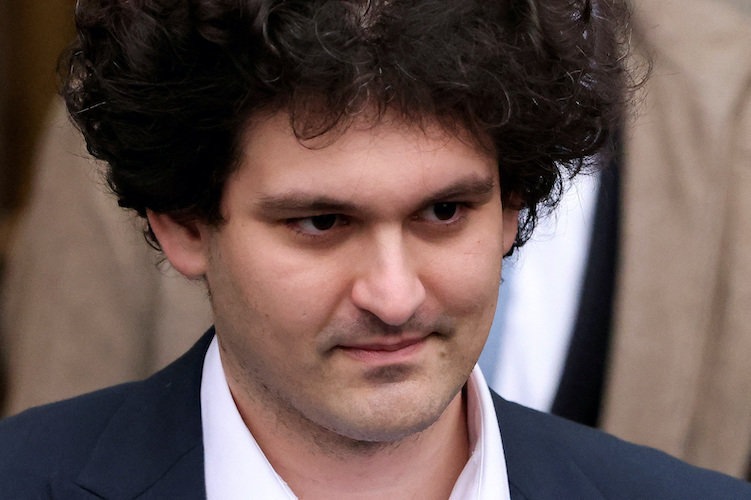The stunning and relatively rapid conviction of one-time crypto whiz Sam Bankman-Fried – who could face years in jail if the verdict is not overturned – is likely to be one of many legal battles focused on the crypto sector.
Crypto giants such as Binance, Coinbase and Gemini are all facing court tussles with regulators, while the Securities and Exchange Commission (SEC) has filed more than two dozen crypto-related cases since the collapse of FTX a year ago.
New York Attorney General Tish James is reported to have targeted major players such as Gemini, Digital Currency Group and Genesis Global Capital for alleged fraud, mostly with civil cases, while the Justice Department has laid criminal charges against some crypto executives such as Alex Mashinsky, the former CEO of Celsius Network who was arrested in July.
A report yesterday by Politico quoted John Reed Stark, a ‘crypto critic who once led the SEC’s internet enforcement office’ as saying: “The parade of cases to follow poses a much more existential threat [to the crypto sector] than the FTX verdict.”
ALSO SEE: Dramatic Turnaround in China’s Attitude to US Chipmaker Micron
Regulators like SEC chairman Gary Gensler and the Commodity Futures Trading Commission “are taking aim at the crypto business itself”, Politico said, amid concerns that digital assets are being used for money laundering and to fund terrorism.
It noted a speech by Gensler last week in which he said that crypto was “a field rife with fraud, scams, bankruptcies and money laundering.”
Other analysts say publicity from Bankman-Fried’s case could prove damaging for the trillion-dollar sector.
But, it may also help spur some trading rules, as politicians in Washington have been debating provisions in a proposed crypto bill, which some have vowed to push through by year-end.
What happened to Bankman-Fried:
FTX founder Sam Bankman-Fried was found guilty late on Thursday of defrauding customers of his now-bankrupt crypto exchange by a 12-member jury in a Manhattan federal court.
The jury took just over four hours of deliberation to find the 31-year-old former billionaire guilty of two counts of fraud and five counts of conspiracy, Reuters said.
In a month-long trial, prosecutors made a case that Bankman-Fried stole $8 billion from the exchange’s customers out of sheer greed, which made it one of the biggest financial frauds on record.
The verdict came just shy of one year after FTX filed for bankruptcy in a swift corporate meltdown that shocked financial markets and erased his estimated $26 billion personal fortune.
Bankman-Fried, who stood and clasped his hands together as the verdict was read, had pleaded not guilty to all seven counts.
The conviction represented a victory for the US Justice Department and Damian Williams, the top federal prosecutor in Manhattan, who made rooting out corruption in financial markets one of his top priorities.
Bankman-Fried, a Massachusetts Institute of Technology graduate whose mother and father both are Stanford University law professors, could face decades in prison when his sentence is determined by US District Judge Lewis Kaplan. It is expected within 90 days.
His defence lawyers, who objected to several rulings by Kaplan before and during the trial, are expected to appeal the verdict.
Once the darling of the crypto world, Bankman-Fried – known for his mop of unkempt curly hair – joins the likes of admitted Ponzi schemer Bernie Madoff, “Wolf of Wall Street” fraudster Jordan Belfort and insider trader Ivan Boesky as notable people convicted of major US financial crimes.
The jury began deliberations on Thursday after hearing the prosecution’s rebuttal to the defence’s closing arguments given a day earlier.
SBF: ‘The money was borrowed’
Prosecutors argued during the trial that Bankman-Fried siphoned money from FTX to his crypto-focused hedge fund, Alameda Research, despite proclaiming on social media and in television ads that the exchange prioritized the safety of customer funds.
Alameda used the money to pay its lenders and to make loans to Bankman-Fried and other executives – who in turn made speculative venture investments and donated upwards of $100 million to US political campaigns in a bid to promote cryptocurrency legislation the defendant viewed as favorable to his business, according to prosecutors.
Bankman-Fried testified in his own defence over three days near the close of trial after three former members of his inner circle testified against him. He faced aggressive cross-examination by the prosecution, often avoiding direct answers to the most probing questions.
He testified that while he made mistakes running FTX, such as not formulating a risk-management team, he did not steal customer funds. He said he thought Alameda’s “borrowing” from FTX was allowed and did not realize how large its debts had grown until shortly before both companies collapsed.
“We thought that we might be able to build the best product on the market,” Bankman-Fried testified. “It turned out basically the opposite of that.”
Prosecutors had a different view.
“He didn’t bargain for his three loyal deputies taking that stand and telling you the truth: that he was the one with the plan, the motive and the greed to raid FTX customer deposits – billions and billions of dollars – to give himself money, power, influence. He thought the rules did not apply to him. He thought that he could get away with it,” prosecutor Danielle Sassoon told the jury on Thursday.
The jury heard 15 days of testimony. Former Alameda CEO Caroline Ellison and former FTX executives Gary Wang and Nishad Singh, testifying for the prosecution after entering guilty pleas, said he directed them to commit crimes, including helping Alameda loot FTX and lying to lenders and investors about the companies’ finances.
The defence argued the three, who have not yet been sentenced, falsely implicated Bankman-Fried in a bid to win leniency at sentencing. Prosecutors are likely to ask Kaplan to take their cooperation into account in deciding their punishment.
Bankman-Fried has been jailed since August after Kaplan revoked his bail, having concluded he likely tampered with witnesses. Kaplan blocked Bankman-Fried from calling several proposed expert witnesses, and ruled he could not testify about the involvement of lawyers in FTX decisions at issue in the trial.
- Jim Pollard with Reuters
ALSO SEE:
FTX’s Bankman-Fried Could Face 155 Years Jail – EuroNews
New FTX Chief Slates ‘Complete Failure of Corporate Control’
Singapore’s Temasek to Write Down $275m FTX Investment
Bankrupt Crypto Exchange FTX Could Have 1 Million Creditors
























